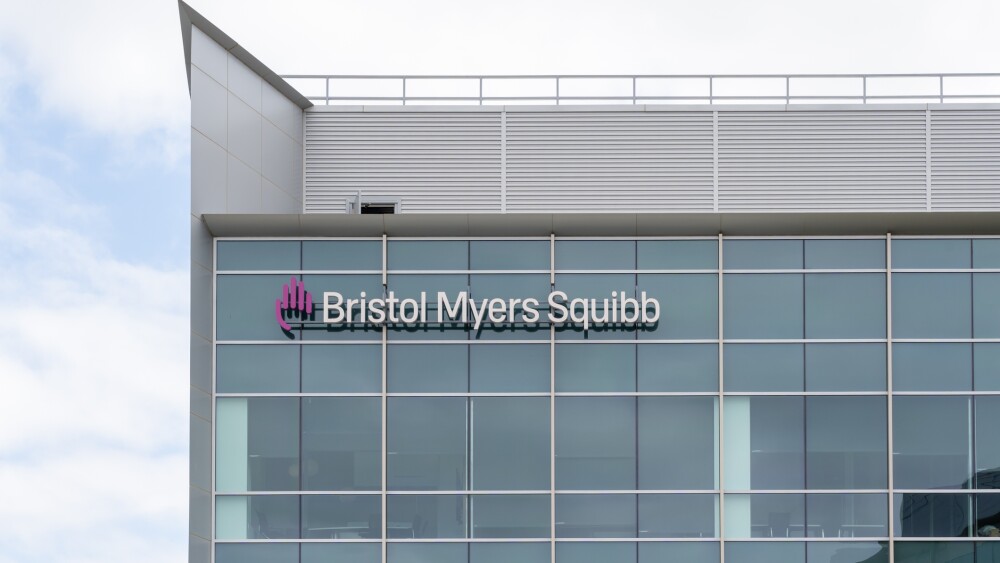SOUTH SAN FRANCISCO, Calif., Nov. 15 /PRNewswire-FirstCall/ -- Monogram Biosciences, Inc. announced today the presentation of new clinical data demonstrating the ability of the company's eTag(TM) assays to predict treatment response for patients with lung cancer who receive Iressa(R) (gefitinib). The presentation is at the American Association for Cancer Research (AACR), National Cancer Institute (NCI) and the European Organization for Research and Treatment of Cancer (EORTC) International Conference on Molecular Targets and Cancer Therapeutics in Philadelphia.
Monogram has developed a set of eTag assays that enables the detection and quantitation of receptor tyrosine kinase dimers of the human epidermal growth factor receptor (EGFR/HER) family. Dimerization of EGFR/HER receptors is an important step in the initiation of signaling leading to tumorigenesis in a number of tissues (e.g. lung, breast, colon, and many others). In this respect, the eTag assay is capable of performing functional assessments of pathway activation, and may have the potential to identify those patients whose tumors rely on signaling pathways that are targeted by gefitinib, and who thus may be more likely to respond.
In the study, which was performed in collaboration with Dr. Yasushi Yatabe, Director, Department of Pathology and Clinical Laboratories, Aichi Cancer Center Hospital, Nagoya, Japan, the eTag assay was used to measure HER-family dimers in two independent datasets of patients with non-small-cell lung cancer who received gefitinib monotherapy following relapse after conventional chemotherapy. The eTag measurements were made on FFPE specimens. While HER receptor expression levels did not permit discrimination of responders from non-responders, several HER-dimers were identified as important correlates of response and a response prediction algorithm was derived using recursive partitioning. Predictions made by the algorithm, which included the variables HER1/HER2 dimers and HER2/HER3 dimers, correlated well with clinical response from both datasets, demonstrating sensitivities of 81% and 93% with positive predictive values (PPV) of 74% and 87%. Overall, the sensitivity for response was 86% and the PPV was 79%.
"We believe the eTag assay has significant potential because of its ability to provide functional assessments of pathway activation in a quantitative manner, and we are examining its clinical utility in lung, breast, and colorectal cancers" said Michael P. Bates, M.D., Vice President of Clinical Research at Monogram. "The eTag assay can not only tell you whether a particular protein is present, but it can also tell you whether that protein is activated and contributing to the proliferative potential of the tumor. The ability to determine whether a particular drug target is activated or not may have important ramifications for physicians considering patients for treatment with targeted therapies."
About the eTag System
Monogram's eTag assays enable detailed analysis of protein drug targets and signaling pathways in cancer cells, using tissue lysates or FFPE specimens, which is the standard format in most pathology labs. The assays can provide information on a drug's mechanism of action, selectivity and potency in a biological setting in pre-clinical research, and enable selection of clinical trial populations later in a drug's development. In addition, Monogram believes these assays may ultimately be used to help physicians better determine whether certain therapies are more appropriate for individual cancer patients, and whether to combine therapies with different mechanisms or properties. The first commercially available activated receptor test panel based on eTag technology, focused on the EGFR/HER receptor family, is planned to be introduced in 2006.
About Monogram Biosciences, Inc.
Monogram, formerly ViroLogic, Inc., is advancing individualized medicine by discovering, developing and marketing innovative products to guide and improve treatment of serious infectious diseases and cancer. The Company's products are designed to help doctors optimize treatment regimens for their patients that lead to better outcomes and reduced costs. The Company's technology is also being used by numerous biopharmaceutical companies to develop new and improved antiviral therapeutics and vaccines as well as targeted cancer therapeutics. More information about the Company and its technology can be found on its web site at www.monogrambio.com.
eTag(TM) is a registered trademark of Monogram Biosciences, Inc. Iressa(R) is a registered trademark of AstraZeneca plc.
Forward Looking Statements
Certain statements in this press release are forward-looking, including statements regarding the ability of assays based on the eTag technology to predict individual patient response to targeted cancer therapies. These forward-looking statements are subject to risks and uncertainties and other factors, which may cause actual results to differ materially from the anticipated results or other expectations expressed in such forward-looking statements. These risks and uncertainties include, but are not limited to, risks and uncertainties relating to the performance of our products; whether measurement of dimerization or protein pathway activation are key indicators in determining individual patient response; our ability to successfully conduct clinical studies and the results obtained from those studies; whether larger confirmatory clinical studies will confirm the results of initial studies; whether the results of studies conducted with patient samples treated with a particular targeted cancer therapy will be representative of results with other targeted therapies; whether clinical data derived from these studies will be adequate to support the commercial introduction of a test for patient responsiveness to targeted cancer therapies; the timing and launch of eTag assays for patient use; our ability to establish reliable, high-volume operations at commercially reasonable costs; the development of competitive technologies; expected reliance on a few customers for the majority of our revenues; the annual renewal of certain customer agreements; actual market acceptance of our products and adoption of our technological approach and products by pharmaceutical and biotechnology companies; our estimate of the size of our markets; our estimates of the levels of demand for our products; the timing and ultimate size of pharmaceutical company clinical trials; whether payors will authorize reimbursement for its products; whether the FDA or any other agency will decide to regulate Monogram's products or services; whether the Company will encounter problems or delays in automating its processes; whether licenses to third party technology will be available; whether Monogram is able to build brand loyalty and expand revenues; the potential impact of cash and or stock payments by us on the Contingent Value Rights issued to shareholders of ACLARA; and whether Monogram will be able to raise sufficient capital when required. For a discussion of other factors that may cause Monogram's actual events to differ from those projected, please refer to the Company's most recent annual report on Form 10-K and quarterly reports on Form 10-Q, as well as other subsequent filings with the Securities and Exchange Commission. We do not undertake, and specifically disclaim any obligation, to revise any forward-looking statements to reflect the occurrence of anticipated or unanticipated events or circumstances after the date of such statements.
Monogram Biosciences, Inc.CONTACT: Alfred G. Merriweather, Chief Financial Officer of MonogramBiosciences, Inc., +1-650-624-4576, or amerriweather@monogrambio.com; orJeremiah Hall, of Feinstein Kean Healthcare, +1-415-677-2700, orjeremiah.hall@fkhealth.com
Web site: http://www.monogrambio.com/




